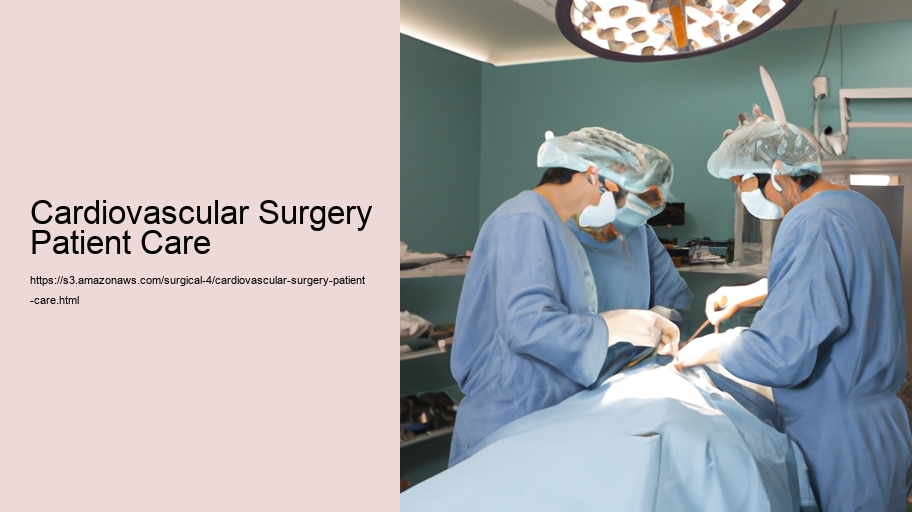Cardiovascular surgery patient care is a critical and intricate field, requiring a multifaceted approach to ensure the safety, recovery, and long-term health of patients undergoing heart and blood vessel procedures. The journey of a patient through cardiovascular surgery is one marked by complexity, requiring the expertise and collaboration of a dedicated healthcare team. This essay explores the various dimensions of patient care before, during, and after cardiovascular surgery.
Preoperative care is the first and crucial phase where patient preparation takes place. Patients are typically referred to a cardiovascular surgeon after a cardiologist has identified a condition that may require surgical intervention. The preoperative period involves comprehensive evaluations, including physical examinations, blood tests, and imaging studies to assess the patient's overall health and readiness for surgery. During this time, patients are educated about the procedure, potential risks, and the importance of lifestyle changes to improve surgical outcomes. Patient education empowers individuals, allowing them to make informed decisions about their care and to understand the importance of adhering to pre- and postoperative instructions.
The role of the healthcare team is pivotal in managing the patient's emotional well-being. Surgery, particularly of the heart, can evoke anxiety and fear. It is the job of the team to provide reassurance and psychological support, often facilitated by counselors or patient liaisons who specialize in helping individuals cope with the stress of impending surgery.
During the surgical procedure, patient care shifts to the operating room where a team of skilled professionals including cardiovascular surgeons, anesthesiologists, surgical nurses, and perfusionists work in concert to perform the operation. The patient is under general anesthesia and is closely monitored. The precision and coordination of the team are paramount to ensure the surgery goes smoothly and that the patient remains stable throughout the procedure.
Postoperative care is where the complexity of cardiovascular surgery patient care becomes even more evident. Immediately following surgery, the patient is transferred to a cardiac intensive care unit (ICU) where they receive round-the-clock monitoring and care. The postoperative phase is critical for the early detection and management of complications such as infections, bleeding, arrhythmias, or graft failures. Pain management, respiratory support, and fluid balance are also crucial components of postoperative care. The goal is to stabilize the patient, promote healing, and gradually restore independence.
Recovery from cardiovascular surgery can be a long and challenging process. As the patient transitions out of the ICU and eventually to a regular hospital room, the focus of care shifts to rehabilitation. Physical therapists and occupational therapists become integral to the team, helping the patient regain strength, mobility, and the ability to perform daily activities. Nutritional support, management of medications, and ongoing education about heart-healthy living are also key to ensuring a successful recovery.
Follow-up care continues well after the patient has been discharged from the hospital. Regular visits to the surgeon and cardiologist are essential to monitor the patient's progress and to detect any potential issues early on. Adherence to prescribed medications, dietary recommendations, and lifestyle changes are reinforced during these visits. The patient's long-term health is dependent on their commitment to follow the medical advice and to engage in preventative measures against future cardiovascular events.
In conclusion, cardiovascular surgery patient care is a complex and dynamic process that extends far beyond the operating room. It encompasses a holistic approach to the patient's physical, emotional, and psychological needs, from the initial diagnosis through to long-term follow-up. The success of surgical outcomes is heavily reliant on the collective efforts of a dedicated healthcare team and the active participation of the patient. With advancements in medical technology and improved surgical techniques, the focus on comprehensive and compassionate patient care remains the cornerstone of achieving the best possible outcomes for those undergoing cardiovascular surgery.
